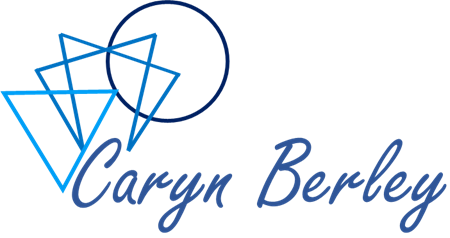It’s a curious thing…
I used to think curiosity was a dirty word.
I grew up with phrases like “curiosity killed the cat.”
Curious George was a monkey whose curiosity always seemed to get him into trouble or needing to be rescued (although he seemed like he was having fun).
My 4th grade teacher went so far as to ban “What if…?” questions in an effort to keep us from getting side-tracked in the classroom.
And in my training to become a peer counselor (and later, therapist), I was taught not to ask “curiosity questions” (because apparently curiosity meant wanting juicy gossip that would detract from the client’s story).
A few years ago, as I was considering what it could look like to step away from clinical social work and into the realm of coaching, I started hearing the word “curiosity” a lot. But the way coaches were using it had a different energy. They spoke about curiosity with high regard, like they were savoring the experience of becoming curious.
To be honest, it made me pretty uncomfortable.
What if my curiosity upsets someone?
What if my curiosity leads me somewhere I don’t know how to navigate or can’t come back from?
What if I get really curious and am met with an “I don’t know” or a door gets closed because of it?
(Funny enough, my answer to any and all of these questions now would be: “Let’s get curious about that.”)
It took time, but my relationship with curiosity has shifted immensely. I’ve learned to embrace the gifts of curiosity. I’ve come to trust my own curiosities, which feel intimately linked with my intuition (another concept that used to make me feel queasy but now delights me). Curiosity to me now feels like an opening; an invitation to somewhere beautifully unknown, begging to be explored.
I hear myself using the word regularly and with reverence. So much so, that the other day I found myself looking for a noun to refer to people who are curious so I could signal that those are my ideal clients.
Here’s one source I found:
This list of labels that includes busybody and sleazemonger (and is even recent enough to list lowercase karen) was a jarring reminder of my old relationship to the word.
I had forgotten how uncomfortable it used to make me and hadn’t been curious enough to deeply consider why. But seeing this list of words, it hit me: the status quo doesn’t want us to be curious.
White supremacy culture doesn’t want us to question the way things are and dare to dream up new ways of being that are non-hierarchical, value people over profit, or suggest that there could be a feasible alternative to capitalism.
When you’re committed to keeping things as they are (which means, currently, systemically and systematically oppressive on so many levels), curiosity is a dirty word.
Curiosity challenges stories and power structures we’re told are not up for debate. It has the power to disrupt the narrative that says, “This is just how it is and there’s nothing you can do about it.”
I’m now crystal clear that all the places I want to go require disrupting the status quo and shifting the paradigm; they require getting curious to dream up and embody new ways of being that are generative, expansive, and perhaps uncharted.
(I want to note that I am inspired by some incredible culture-makers that are, and have been, doing this work on behalf of liberation, including adrienne maree brown, Sonya Renee Taylor, Rachel Rickets, Prentis Hemphill, and the folks at Holistic Resistance, just to name a few.)
Whether I’m delving into the conditioned stories and beliefs of my or my clients’ personalities or witnessing and feeling the grief of oppressive policies and practices (disproportionately affecting folks with marginalized identities), curiosity is a necessary instrument.
I can get curious about how things could be different. I might get curious about my own complicity in the systems around me and about what I CAN do to show up more fully and leverage my privilege and positionality to someday render it unnecessary. I can mix my curiosity with a hefty dose of compassion and get compassionately curious about how others see the world, even if it’s drastically different from the way I do. Or my favorite use of compassionate curiosity - turning toward the parts of myself or my clients that are perpetuating harm because they’re locked in protection and are acting in the only ways they know how.
In Enneagram language, curiosity is one of the higher qualities of the head center. Through various practices, we can support our bodies to become grounded, our hearts to be open and receptive, and our minds to be curious. And what a wonderful gift that is.
With Love,
~Caryn
P.S. Are you curious about your conditioned beliefs, stories, and personality patterns? Learn about my Enneagram Exploration services, including a brand new way to get direct support in exploring your curiosities!
New Offering - Professional in your Pocket!
The Enneagram is my favorite system to support self-observation and inquiry. It piqued my curiosity several years ago and didn’t let go, which is why I’m in continuous study of it through self-observation, classes with teachers who transmit their decades of wisdom and insight, and teaching the system myself. And, since it is so complex and brings up so many questions, I have a brand new offering! I’m calling it Professional in your Pocket, and it’s a way for you to get direct access to my Enneagram expertise as you ask big questions and learn practical ways to embody your self-discovery.
Check out this new service or my other Enneagram Exploration services on my newly updated website!
“Mystery feeds curiosity, and curiosity compels us to consider new patterns, forge new paths, ask what more is possible than we previously thought.” - Erik Wahl, Unthink.


